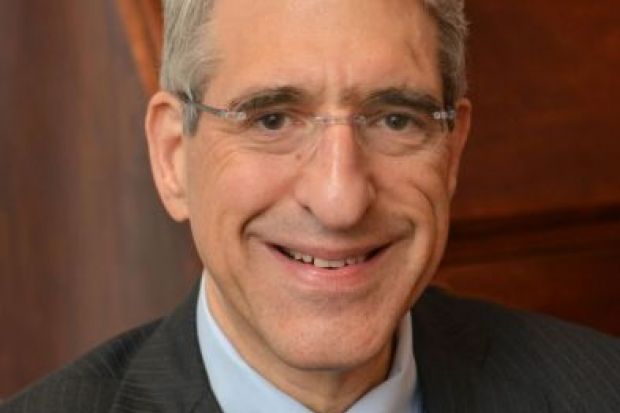Yale University president Peter Salovey has decided to step down after more than a decade leading the Ivy League institution, leaving at a moment of financial strength and rising labour unrest.
“There is no perfect moment” for a leadership transition, the 65-year-old social psychologist said in announcing his decision to leave the presidency after the current academic year. “Yet, I believe the best time to search for a new leader is when things are going well.”
Professor Salovey noted that Yale has made it through the Covid pandemic even stronger than it was, with a major fundraising campaign having reached $5 billion (£4 billion) towards its $7 billion goal.
After his June 2024 departure from the Yale presidency, Professor Salovey said he will return to a full-time position on the university faculty. His career accomplishments include creating one of the leading models for understanding the concept of emotional intelligence.
Much of US higher education – now including most of the Ivy League – has seen leadership transitions since the pandemic hit in early 2020, in a trend of increasingly shorter presidential tenures. Professor Salovey’s predecessor at Yale, Richard Levin, served 20 years, also leaving at age 65.
Yale, in announcing Dr Salovey’s decision, offered a list of accomplishments covering both teaching and research, including new campus construction, providing greater affordability for students at all levels, and acknowledging Yale’s historical ties to slavery.
Joshua Bekenstein, an investment banker and Yale alumnus who serves as the senior trustee of the governing Yale Corporation, thanked Professor Salovey for announcing his decision at a moment “when the university is in such a strong position financially, academically, and strategically”.
Yet Yale also faces the wave of labour dissatisfaction that is sweeping over much of US higher education. After decades of battling efforts by graduate student workers to unionise, the university relented in recent months and faces the prospect of long and contentious bargaining.
Professor Levin, an economist, had cited his success in concluding labour negotiations with university workers as a factor in the timing of his departure from the Yale presidency in 2013.
Professor Salovey said he told the Yale trustees that he would be willing to remain beyond next June if a successor is not found by then. He also expressed a willingness to help with university fundraising activities beyond his term in office at least as enthusiastically as he did while president.
Yale has faced some controversy in that area, including a 2021 incident in which Beverley Gage, a prominent professor of history and American studies at Yale, resigned over the university’s insistence that financial funders could guide its curriculum.
Professor Salovey was elevated to the presidency after serving Yale as provost from 2008 to 2013. He also had been dean of Yale College and dean of the Graduate School of Arts and Sciences. He earned undergraduate degrees in sociology and psychology from Stanford University, and three graduate degrees in psychology from Yale.
After leaving the presidency, Professor Salovey said in a note to the campus community, he plans “to return to the Yale faculty, work on some long-delayed writing and research projects, and renew my love of teaching and working with students while continuing to help with fundraising”.
He made particular note of his wife, Marta Elisa Moret, and their meeting as graduate students at Yale, and thanked her for delaying her own retirement to help him in his presidential duties.




